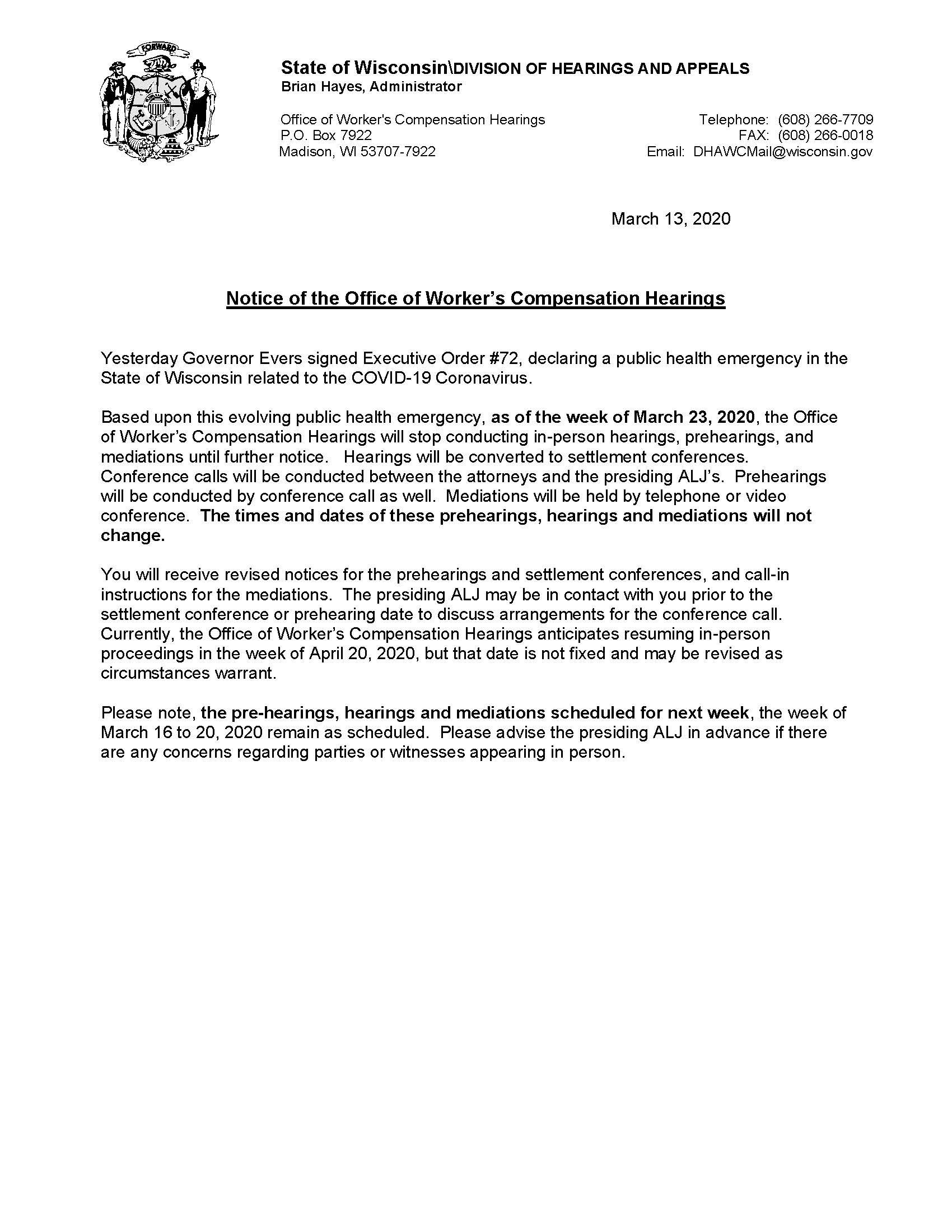As precautions increase, and more Employers are encouraging work from home, the chance of a work injury occurring at home also increases. Here are a few pointers to help Employers and Worker’s Compensation Carriers deal with these issues:
- Employees, even while at home, may still be covered by the Wisconsin Worker’s Compensation Act.
- Working at home may be covered under the Traveling Employee Doctrine, similar to an Employee working in a hotel room while traveling, unless there is a personal or private deviation from regular work duties.
- Private or personal deviation do not include injuries covered by the personal comfort doctrine (i.e. getting water, using the restroom, etc.) even though the Employee is at home.
- There may be some hazards in the Employee’s home, which the Employer cannot exercise control over (i.e. children, pets, stairways (zones of danger), etc.), that could cause an injury, but may not stop a judge from finding the injury compensable. A good comparison is a traveling Employee who is injured driving for work. The Employer cannot control the other driver who caused the injury, but the injury will likely be found compensable.
- A fact specific analysis is key with these types of claims; thus, recorded statements need to be taken early and obtain as many details as possible before facts change to further support a work injury.
- The recorded statement should include details about the home environment.
- Employers or Carriers may need to obtain pictures if the claimed injury and/or environment is confusing or warrants clarification.
- It is unlikely there will be any witnesses, which increases the importance of obtaining a good recorded statement.
Scenarios that may be confusing, but would likely be covered:
- An on-call Employee is sitting on the couch and gets up to answer the phone. While getting up in a hurry to answer the phone, the employees hurts a knee or back. A judge may find this compensable simply because the employee was on-call and doing something for the Employer by getting up to answer the phone.
- An on-call Employee goes out to salt the driveway just in case he is called in to work. He slips on the ice. This could be found compensable because the act was undertaken for the benefit of the Employer (i.e. Applicant being able to come to work).
- An Employee is walking on a treadmill while responding to work email on a tablet. The reading and responding to email may be deemed a work activity, and the injury would likely be found compensable.
Basically, activities that are undertaken for the benefit of the Employer will put Employees in the scope of Employment, and an injury while in the scope will likely be covered, unless Employers and Carriers can demonstrate there was a deviation or some other reason the claimed injury should not be covered.
Regarding work-related exposure, there may be compensability issues for Employees who do not travel, but have come in contact with other Employees who have traveled to an infected area or were exposed during the course of their employment. Some examples include healthcare workers who may have not had direct contact with an infected individual but may have contracted the illness from a coworker. This claim would likely be found compensable.
Likewise, a construction worker building an addition to a hospital who comes in contact the illness may have a compensable claim if the illness can be traced to the hospital jobsite he/she worked at. This is similar to the H1N1 analysis referenced in our March 12, 2020 post.
Another example is a faculty member for a school or university who was unknowingly exposed to the illness and was subsequently quarantined. This period could be deemed a compensable work injury because the exposure occurred at work. The same holds true for other Employees who had subsequent contact due to their proximity to the infected individual.
If you have any questions, contact our office to discuss.

